Top 13 Amazon web services Alternatives & Competitors in 2024

Alt_13 (Repost.aws) has established a space in the cloud computing community that is both unique and valuable. It aims to make it easier for users to share and find helpful resources, serving as a hub for collaboration among professionals. With a focus on community-driven content, alt_13 provides a platform where insights, experiences, and practices are shared, aiding users in navigating the complexities of cloud technology effectively.
As demand for cloud solutions grows, communities like alt_13 connect people. They encourage learning and engagement, allowing individuals and businesses to stay informed about the latest trends and tools. This communal approach helps members find answers and build networks that can lead to new opportunities. While alt_13 is notable, other players in this field offer different features and dynamics to meet the needs of cloud enthusiasts and professionals.
While amazon-web-services is a great product, it’s always good to shop around and look for alternatives. This article identifies some top competitors and their pros and cons.
Microsoft Azure
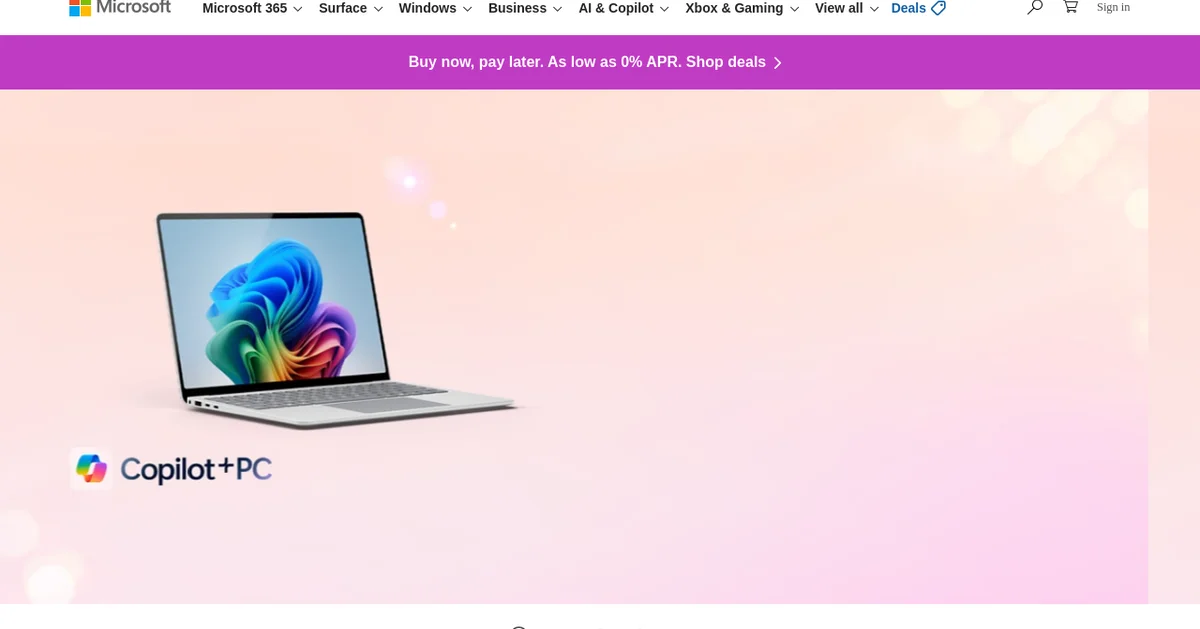
Microsoft Azure is a key player in cloud computing. Since its launch in 2010, it has expanded into one of the most comprehensive cloud platforms. Businesses of all sizes turn to Azure for services ranging from computing power and analytics to storage solutions and machine learning tools. Its robust offerings make it a solid alternative to alt_13 for companies navigating cloud complexities.
Azure’s hybrid cloud capabilities stand out. Users can run applications on-premises and in the cloud through services like Azure Arc. This flexibility allows businesses to transition at their own pace. Azure also integrates well with Microsoft products, which many companies already use. This integration can save time and reduce friction for teams familiar with Office 365 or Dynamics.
Azure’s focus on security is another key advantage. With built-in security monitoring and advanced threat protection, businesses can trust that their data is secure. The platform meets compliance requirements across various industries, which is crucial for businesses concerned about regulatory issues.
Cost management tools are also part of Azure’s offerings. These tools help organizations optimize cloud spending, making it easier to manage resources and limit waste. Combined with a vast global network of data centers, Azure provides a reliable and scalable solution for businesses looking to grow.
Microsoft Azure features hybrid capabilities, strong security measures, and seamless integration with other Microsoft products, making it a solid choice for cloud computing needs.
Pros
- Flexible hybrid cloud options
- Strong security features
- Seamless integration with Microsoft products
- Comprehensive cost management tools
Cons
- Can be complex for new users
- Pricing may be challenging to navigate
Google Cloud Platform
Google Cloud Platform (GCP) is a key player in cloud computing, offering services that improve business operations. Built on Google’s infrastructure, GCP provides solutions for computing, data storage, data analytics, and machine learning. This platform excels in speed and scalability, enabling businesses to adjust their resources as needed.
A notable feature of GCP is its network. Using Google’s global backbone, users benefit from low-latency performance and high reliability. Its powerful machine learning tools, such as TensorFlow, allow businesses to access AI features without a data science team. GCP also emphasizes sustainability, highlighting its climate action efforts, which can appeal to environmentally focused companies.
GCP often attracts tech-savvy organizations that prioritize innovation and speed. It offers competitive pricing models, making advanced cloud services accessible to smaller businesses. Additionally, GCP provides a variety of integration options with other Google services, simplifying workflows for those already using the Google ecosystem.
For teams exploring alternatives like alt_13, Google Cloud Platform serves as a strong option. Its effective tools, dedicated support, and focus on sustainability can assist businesses in achieving their objectives while reducing operational costs.
Pros
- Global network ensures low latency and high uptime.
- Advanced machine learning and AI capabilities.
- Commitment to sustainability and climate action.
- Competitive pricing and flexible plans.
Cons
- Can be complex for businesses new to cloud services.
- Some users report a steeper learning curve than competitors.
- Limited support compared to some specialized cloud service providers.
IBM Cloud
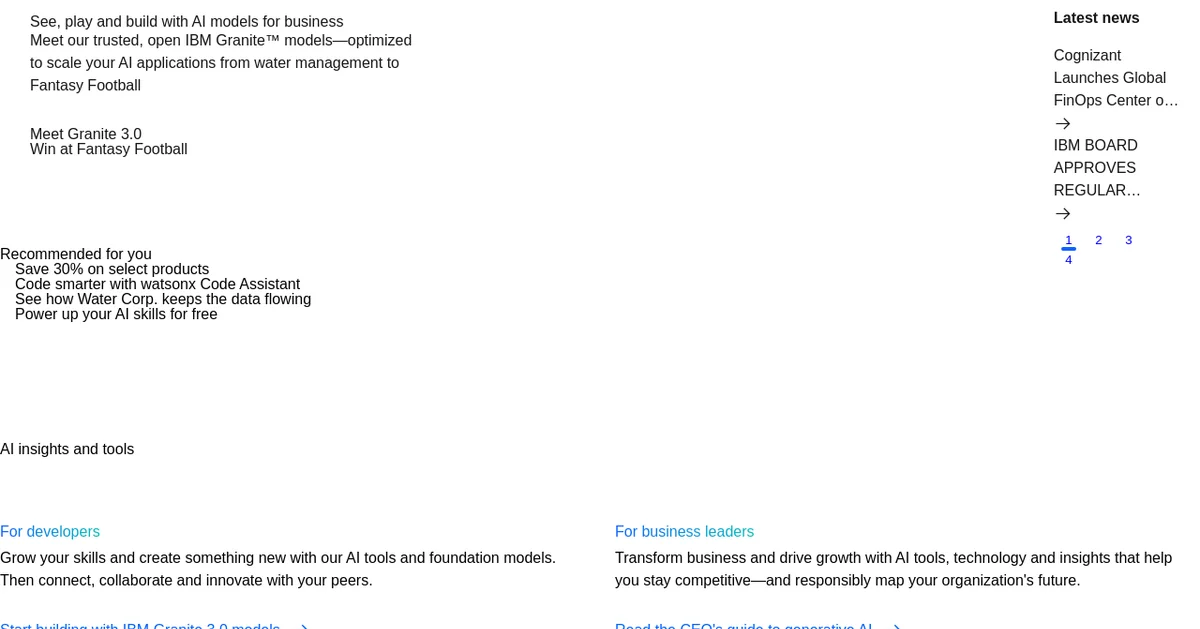
IBM Cloud is a significant player in cloud computing, offering solutions to meet the needs of businesses today. As companies grow, the demand for secure and efficient cloud services increases. IBM Cloud’s unique blend of AI capabilities and hybrid cloud infrastructure addresses this need.
A key feature of IBM Cloud is its Granite™ AI models, designed to scale applications across diverse sectors like finance and environmental management. These models enable businesses to use AI without significant upfront investment, promoting quicker go-to-market strategies. The focus on practical applications, such as recent improvements for fantasy sports and enterprise modernization, highlights IBM’s adaptability to various markets.
IBM’s consultative approach sets it apart. Businesses can work with IBM Consulting for tailored solutions that combine advanced technology with industry insights. This might involve creating custom cloud architectures or integrating AI models that improve productivity while ensuring security. With a focus on responsible AI and cybersecurity, IBM tackles critical challenges businesses encounter today.
Additionally, IBM Cloud’s emphasis on sustainability and ethics resonates with stakeholders concerned about corporate responsibility. Whether a company needs reliable backup solutions or advanced data analytics, IBM offers tools that can grow with changing business needs.
IBM Cloud provides a strong mix of features, solid consulting support, and a commitment to responsible technology. Its capability in AI and hybrid cloud infrastructure makes it a worthy alternative to competitors.
Pros
- Advanced AI capabilities with Granite™ models
- Customized consulting services
- Strong focus on security and data protection
- Commitment to sustainability and responsible technology
Cons
- Can be complex for smaller businesses
- Pricing may be higher than some options
Oracle Cloud
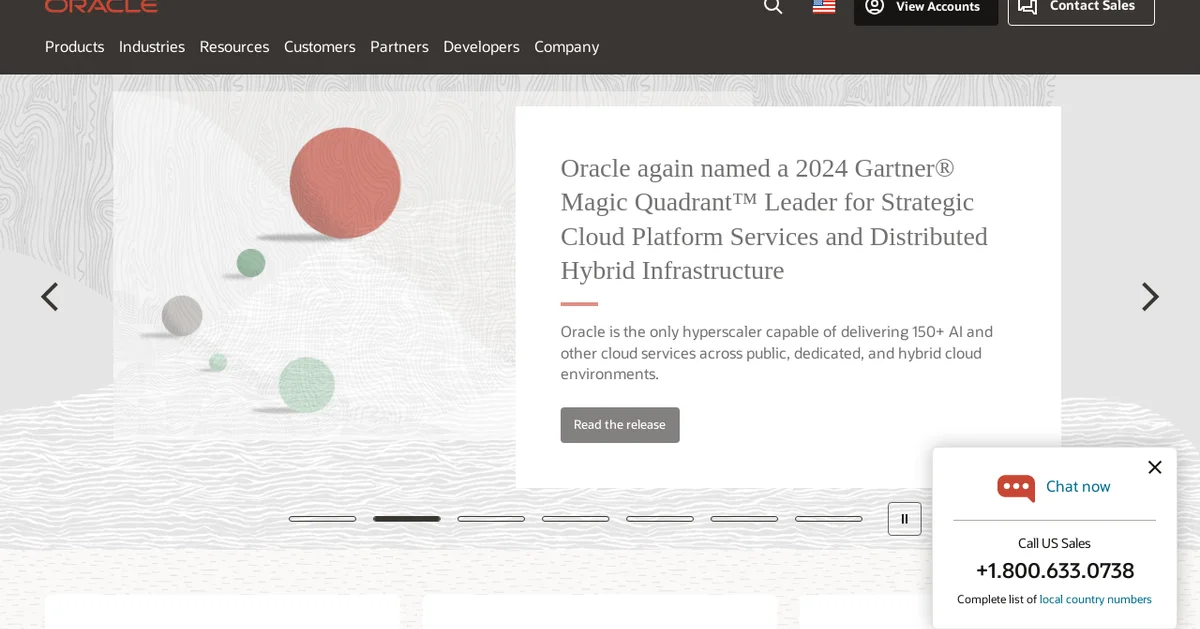
Oracle Cloud stands out as a strong option in cloud computing, especially for businesses seeking AI capabilities and secure infrastructure. Unlike alt_13, Oracle is the only hyperscaler that provides over 150 AI and cloud services across public, dedicated, and hybrid clouds. This offering appeals to organizations with varied needs.
Their focus is on innovation and security. For example, they are developing a next-generation electronic health record system that includes AI and military-grade security, set to launch in 2025. This commitment to healthcare highlights Oracle’s goal of improving service delivery in critical areas. Additionally, Oracle’s multicloud partnership with AWS introduces products like Oracle Database@AWS, demonstrating flexibility in the changing cloud landscape.
A key feature of Oracle Cloud is its capacity to handle large-scale AI workloads effectively. Companies like Modal Labs use Oracle Cloud Infrastructure (OCI) for faster, cost-effective AI processing. This capability improves various applications such as precision oncology research and supply chain management.
Oracle Cloud provides a comprehensive suite of tools for businesses aiming to improve their operations with advanced technology. Through AI capabilities and a reputation for security, Oracle stands out as a viable choice.
Pros
- Wide range of AI and cloud services
- Focus on security and compliance
- Innovative solutions for healthcare and other sectors
- Strong multicloud capabilities
Cons
- Steeper learning curve for new users
- Complex pricing based on services
- Competitors may offer simpler solutions
Alibaba Cloud
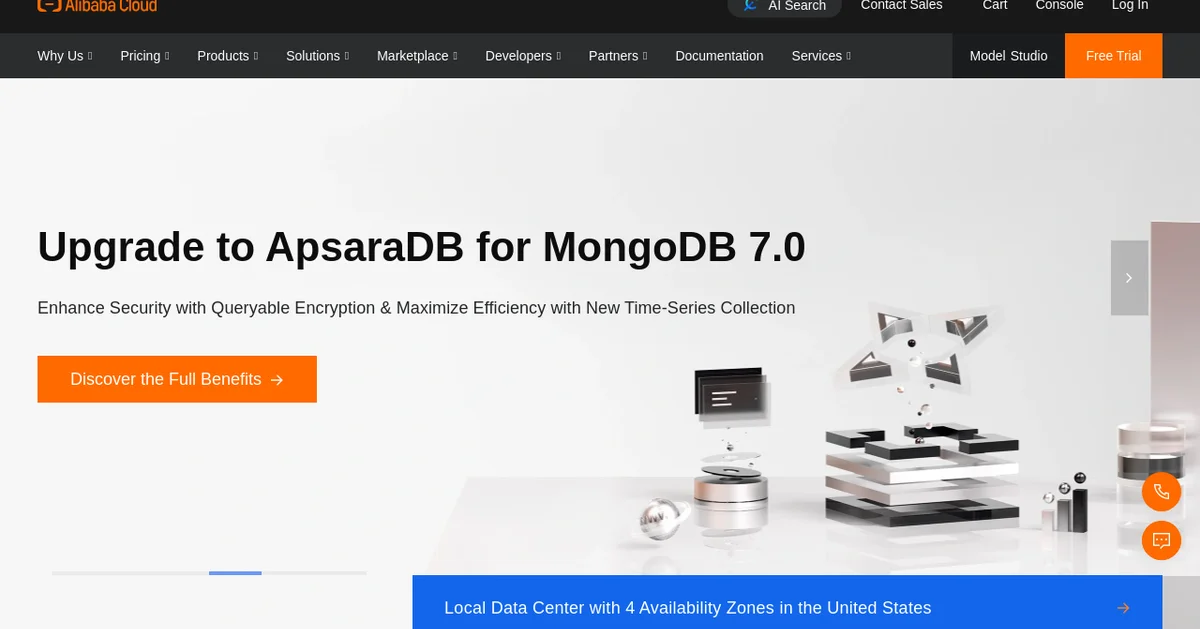
Alibaba Cloud is a major player in cloud computing, particularly in Asia-Pacific. Their mission is to empower businesses by providing cloud solutions that meet diverse needs. They serve as a solid alternative to companies like alt_13, especially for organizations looking to enter the Greater China region.
A notable feature of Alibaba Cloud is its understanding of the local market. They work with global companies, such as Salesforce, to deliver services that address specific regional demands. This partnership demonstrates their ability to navigate regulatory environments and cultural nuances, helping multinational corporations establish their presence.
Another appealing aspect of Alibaba Cloud is its strong infrastructure. They provide various services, from scalable computing power to data storage, all secured through a reliable framework. Their commitment to security ensures that businesses can trust them with sensitive information. Additionally, they offer support options, including live chat and ticket-based assistance, which can appeal to businesses seeking prompt solutions.
Their global reach combined with local expertise offers a unique advantage. Companies can expand operations while tapping into Alibaba’s extensive ecosystem. The potential for growth is significant, especially for businesses focused on the Chinese market.
Pros
- Understanding of the Greater China market
- Partnerships with global tech leaders like Salesforce
- Secure infrastructure
- Timely technical support options
Cons
- May have a steeper learning curve for non-Chinese businesses
- Language barriers could challenge customer service
- Value may depend on specific regional needs
VMware Cloud
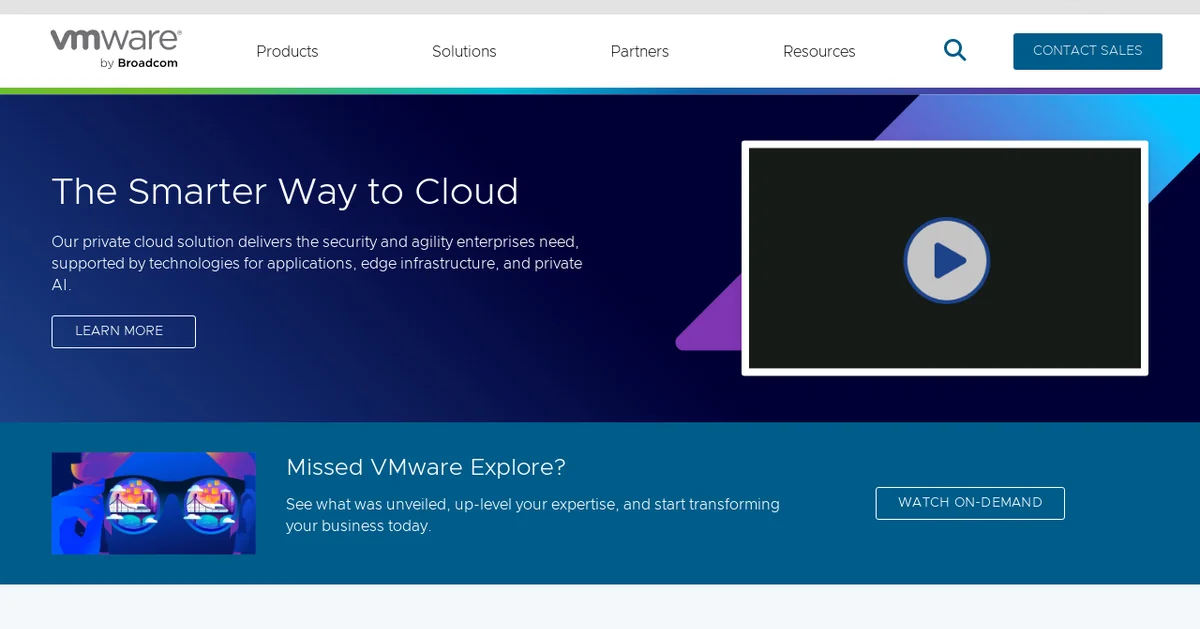
VMware Cloud is a major player in cloud computing, known for its offerings that cater to businesses of all sizes. They help organizations transition to the cloud, allowing for greater flexibility and efficiency. A key feature that sets VMware Cloud apart is its integration capabilities. It enables businesses to run applications across multiple clouds, including their own data centers, public clouds, or hybrid environments.
VMware has a strong history, starting with the early days of virtualization. They evolved as companies recognized the benefits of lowering hardware costs and optimizing resources. Over the years, VMware has built a comprehensive cloud platform that fosters innovation and growth. Their approach to hybrid cloud technology empowers organizations to retain control over operations while benefiting from scalability when needed.
Benefits of using VMware Cloud include improved operational efficiencies, robust security features, and the ability to manage workloads across various environments without interruption. Businesses can quickly adapt to changing demands, and since VMware supports a range of operating systems and applications, migration can be relatively simple.
Compared to alternatives, VMware Cloud excels with its established reputation and extensive ecosystem of partners, appealing to companies seeking reliability and support. They also offer tailored solutions for different industries, appealing to businesses needing specific compliance and regulatory solutions.
Pros
- Strong integration capabilities across multiple clouds
- Established reputation in cloud computing
- Versatile offerings for various industries
- Robust security and management tools
Cons
- Can be complex to set up
- Potentially higher costs compared to some competitors
- May require training for effective use
Salesforce Cloud
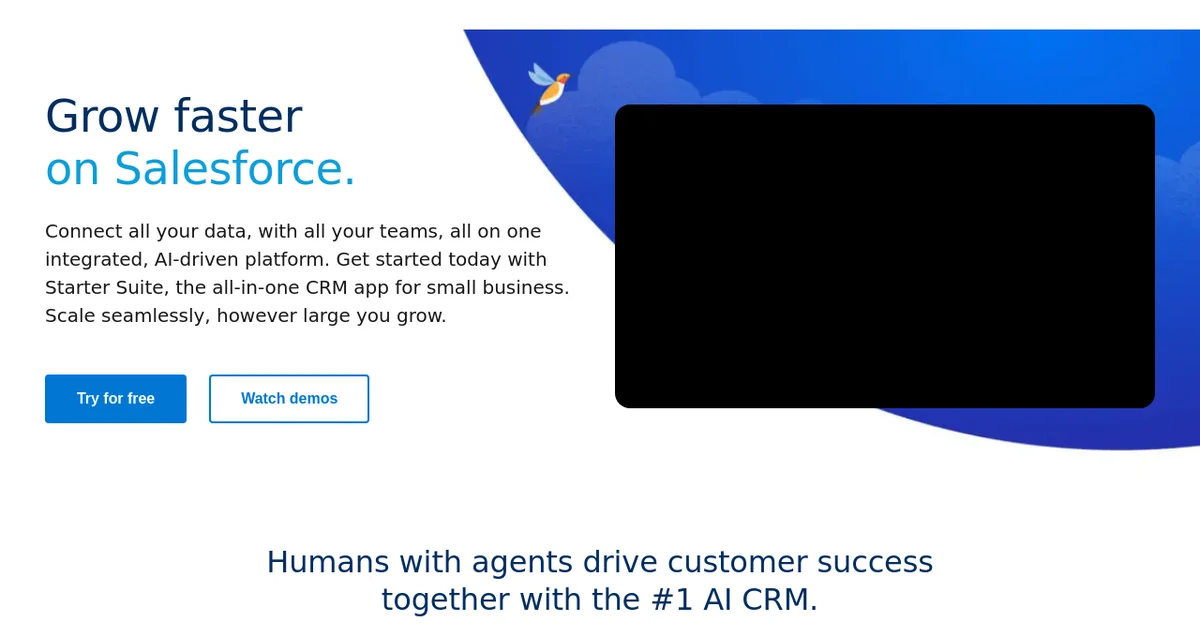
Salesforce Cloud stands out as a strong alternative to alt_13 in the cloud computing community, especially for businesses seeking a comprehensive CRM solution. It emphasizes the integration of data and teams on a single AI-driven platform, allowing organizations of all sizes to streamline operations and improve collaboration.
One key feature is the Starter Suite, designed for small businesses. This all-in-one CRM app simplifies managing marketing, sales, service, and commerce functions. With straightforward setup and built-in guidance, it enables users to get started quickly and see results almost immediately. Companies benefit from improved organization and can use powerful AI tools through Agentforce to build custom AI agents that assist teams in various tasks, boosting productivity and driving revenue.
Salesforce began in the CRM movement and has evolved into a comprehensive platform. The data cloud combines all data sources for personalized engagement, while integrated tools like Slack and Tableau improve collaboration and reporting. With a focus on serving every industry, from healthcare to retail, Salesforce provides solutions that meet diverse needs.
Salesforce Cloud differentiates itself with seamless integration, powerful analytics, and a strong focus on AI and automation. Many businesses find this design appealing as they aim to scale operations and make data-driven decisions.
Pros
- Comprehensive CRM with integrated features
- Easy setup for small businesses with Starter Suite
- Customizable AI agents through Agentforce
- Strong analytics with real-time dashboards
- Applicable across various industries
Cons
- May be overwhelming for smaller companies with limited needs
- Cost may concern startups on tight budgets
- Learning curve for some advanced features
SAP Cloud
SAP Cloud is a key player in enterprise application software, offering a range of solutions for businesses of all sizes. Its flagship product, SAP S/4HANA Cloud, provides a modular ERP solution with AI and analytics. This enables real-time operations, essential for companies seeking efficiency and agility. A standout feature of SAP Cloud is its ability to integrate various business functions—finance, customer experience, supply chain management, and human capital management—into a cohesive system. This can improve performance and simplify workflows, distinguishing it from alternatives like alt_13.
SAP’s journey began decades ago, evolving into a trusted name for innovative enterprise solutions. The company aims to help organizations succeed in a changing market, setting itself apart with tailored industry solutions that address specific business needs. Investments in generative AI and data analytics empower businesses to change their operations, making SAP a strong choice for companies wanting to stay ahead.
Another key benefit of SAP Cloud is its focus on supply chain resilience and sustainability. By digitizing transactions and connecting systems across different enterprises, SAP supports transparent and efficient supply chain management. This is vital for businesses looking to adapt to shifting market conditions without sacrificing performance.
SAP Cloud provides comprehensive cloud solutions that tackle various business challenges. Its integrated approach, innovative technologies, and focus on sustainability are strengths that make it a solid alternative to alt_13.
Pros
- Comprehensive ERP modules for real-time operations
- Strong integration across various business functions
- Focus on supply chain resilience and sustainability
- Tailored solutions for specific industries
Cons
- Potential complexity in implementation
- Higher initial investment compared to simpler solutions
- Learning curve for users unfamiliar with SAP’s ecosystem
DigitalOcean
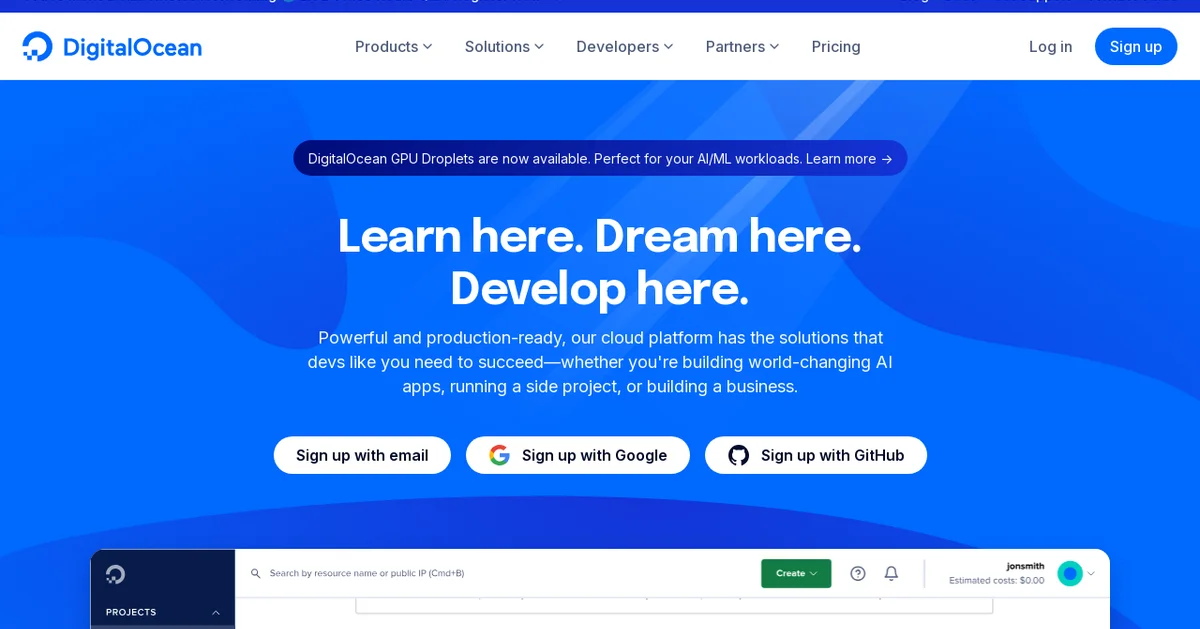
DigitalOcean has established itself in the cloud computing space, emphasizing simplicity and affordability for developers and small to medium-sized businesses. Launched to make cloud computing more accessible, DigitalOcean has quickly attracted startups and independent developers. They provide a platform that enables users to deploy applications quickly, resulting in over 600,000 customers.
One of DigitalOcean’s key offerings is its GPU Droplets, designed for AI and machine learning workloads. This feature gives users on-demand access to high-performance computing power, beneficial for companies wanting to innovate without high costs. Their clear pricing model also distinguishes them, allowing users to anticipate expenses and avoid surprises.
DigitalOcean positions itself as a supportive partner by offering managed services like App Platform and Kubernetes. This simplifies scaling applications as needs change. Their commitment to customer support, through free resources and dedicated plans, highlights their goal of building long-term relationships with clients.
Consider DigitalOcean as an alternative to alt_13, as it offers features that could align with your needs. Its focus on simplicity, affordable pricing, and strong support makes it an appealing option.
Pros
- User-friendly interface for quick deployment
- GPU Droplets for AI workloads
- Clear pricing model
- Strong support for startups and SMBs
- Managed services for easier scaling
Cons
- Limited advanced features compared to larger hyperscalers
- May not suit large enterprises
- Smaller ecosystem of third-party integrations
Rackspace Technology
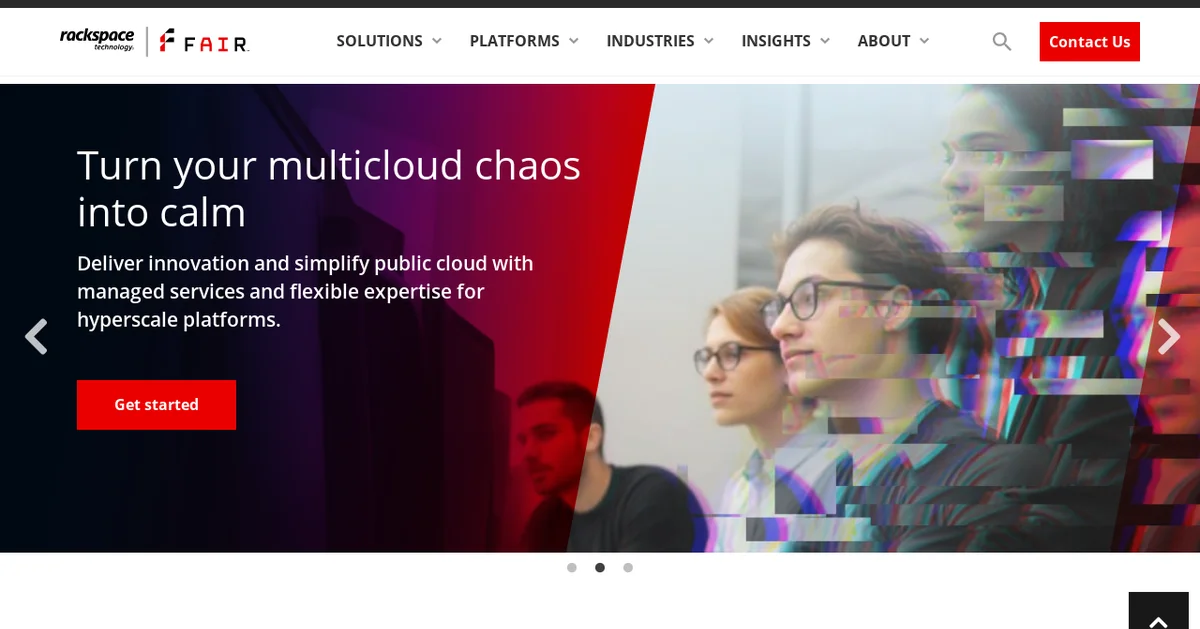
Rackspace Technology is a key player in cloud computing, focusing on managed cloud services that help businesses with digital transformation. Unlike alt_13, which emphasizes infrastructure services, Rackspace concentrates on delivering results. They simplify complex multicloud environments, making it easier for organizations to innovate and adopt new technologies.
A notable feature of Rackspace is the recent launch of GPU-as-a-Service, powered by NVIDIA. This service accelerates AI and machine learning workloads, making it a good choice for companies wanting to improve data processing capabilities. With a team of over 3,200 certified technical experts, they provide tailored solutions across various cloud platforms, including AWS, Microsoft Azure, and Google Cloud. This expertise allows businesses to improve their cloud investments while reducing risks associated with vendor lock-in.
Rackspace prioritizes security with its 24/7 security operations center. Their Foundry for AI by Rackspace (FAIR™) offers a structured way for businesses to explore AI applications, ensuring secure and responsible use. With over 25 years of service, Rackspace brings significant experience, deep knowledge, and many partnerships.
For businesses needing a collaborative approach to cloud transformation, Rackspace stands out. They offer a mix of innovation, reliable support, and specialized services, making them a viable alternative to alt_13.
Pros
- Focus on outcomes rather than just infrastructure
- Extensive expertise in various cloud platforms
- Innovative offerings like GPU-as-a-Service
- Strong security solutions with 24/7 monitoring
- Long history of industry experience
Cons
- May be seen as more enterprise-focused, potentially limiting for smaller businesses
- Pricing structures may vary significantly based on services offered
Red Hat OpenShift
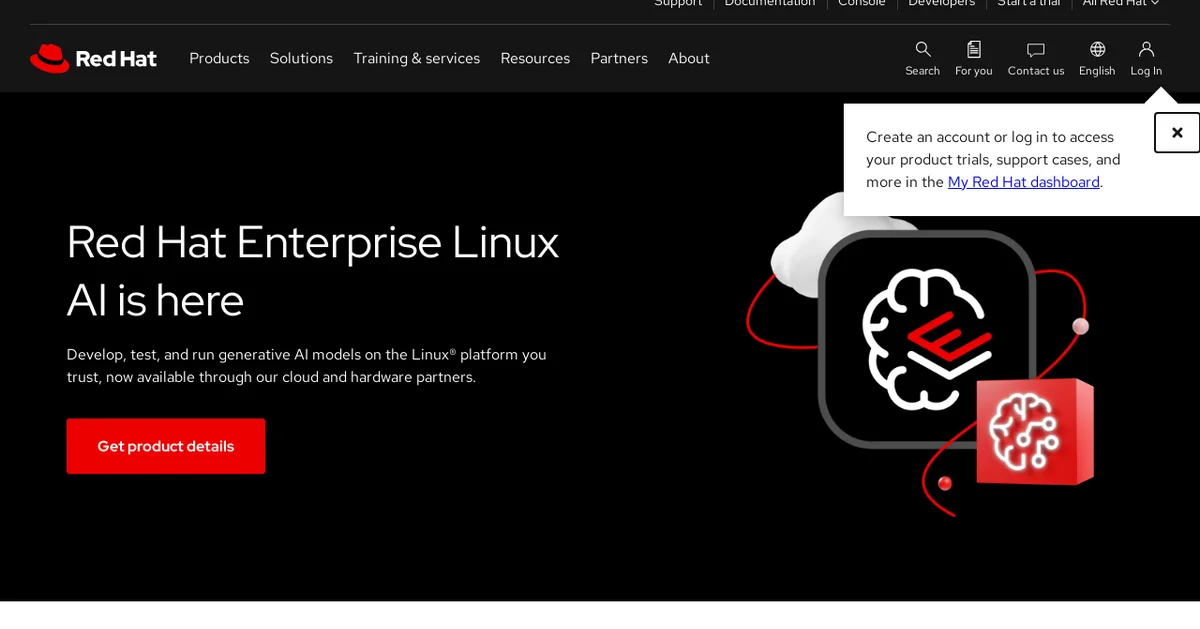
Red Hat OpenShift is a container application platform designed to help with the development, deployment, and management of applications on hybrid cloud infrastructure. As part of the enterprise open source solutions, OpenShift stands out with its strong architecture and flexible integration. It is built on Kubernetes, making it a viable option for organizations aiming to improve their DevOps practices and streamline CI/CD workflows.
OpenShift emphasizes open source collaboration, leading to more secure and innovative applications. This community-driven approach allows developers to access a rich collection of tools and resources. Red Hat’s reputation in enterprise environments—over 90% of Fortune 500 companies use their technologies—demonstrates the trust and reliability of their offerings. The support for AI-enabled applications shows their strategy in the evolving landscape of cloud computing.
OpenShift also offers features like automated scaling, simplified management of containerized applications, and a unified experience across on-premise and cloud environments. This allows organizations to build new applications and modernize existing ones, optimizing their operations with minimal disruption.
Pros
- Strong integration with Kubernetes, ensuring scalability.
- Embraces open source practices, encouraging community contributions.
- Established and trusted by large enterprises.
- Comprehensive AI and automation capabilities.
Cons
- Potentially steeper learning curve for newcomers.
- Can require significant resources for implementation and maintenance.
- Complexity may be overwhelming for smaller teams or projects.
Linode
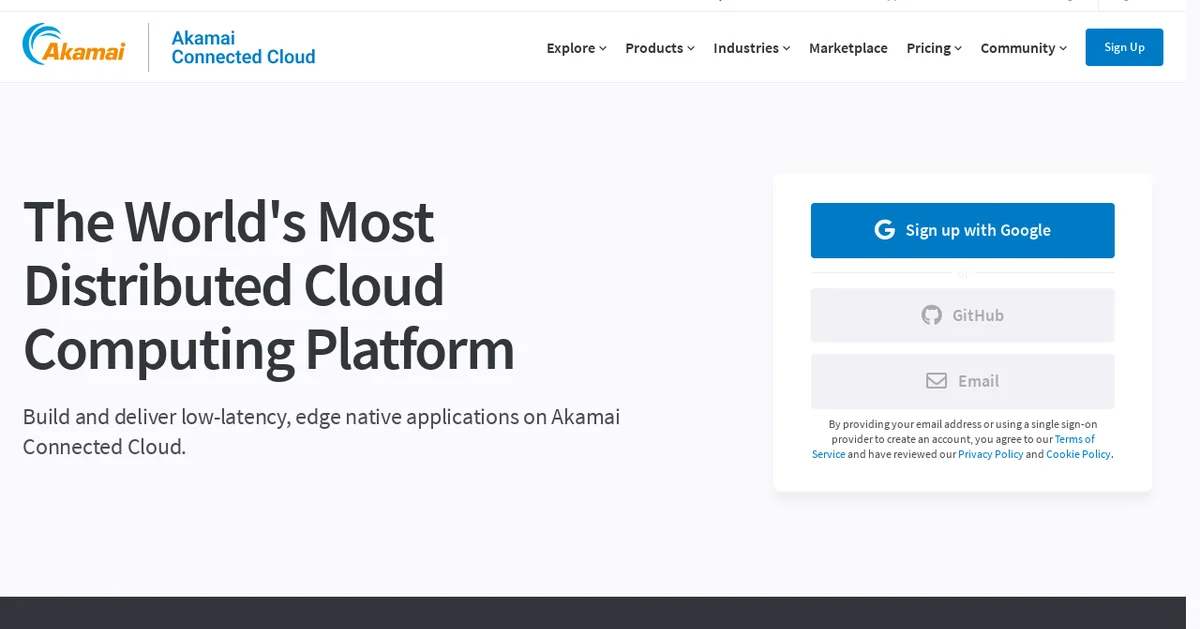
Linode is a cloud computing provider for developers, startups, and businesses seeking reliable and cost-effective cloud services. Founded in 2003, Linode has built a strong reputation in the cloud hosting market due to its clear approach and user-friendly platform. They focus on providing virtual servers with a simple experience, making it easy to deploy and manage applications.
One standout feature of Linode is its pricing. Unlike some providers, Linode is clear about its pricing structure, allowing clients to predict costs accurately. They offer a range of compute options, from shared CPU plans for smaller projects to dedicated CPU instances for demanding applications. This flexibility is beneficial for businesses needing scalable solutions.
Linode’s community support also differentiates it from competitors. They have a vast library of tutorials, guides, and a community forum where users can collaborate and share insights. This is helpful for developers working through issues or learning new skills.
In terms of performance, Linode offers fast data transfer speeds and reliable uptime, which is essential for businesses that require a stable online presence. Their data centers are located in various parts of the world, ensuring low latency and optimized performance.
Linode is an appealing choice for those seeking a budget-friendly, straightforward cloud solution with strong community support.
Pros
- Competitive and clear pricing
- Versatile compute options
- Strong community support with extensive resources
- Reliable performance and uptime
Cons
- Limited advanced features compared to some competitors
- Customer support responses can vary
- May not provide as many integrated services as larger providers
Tencent Cloud
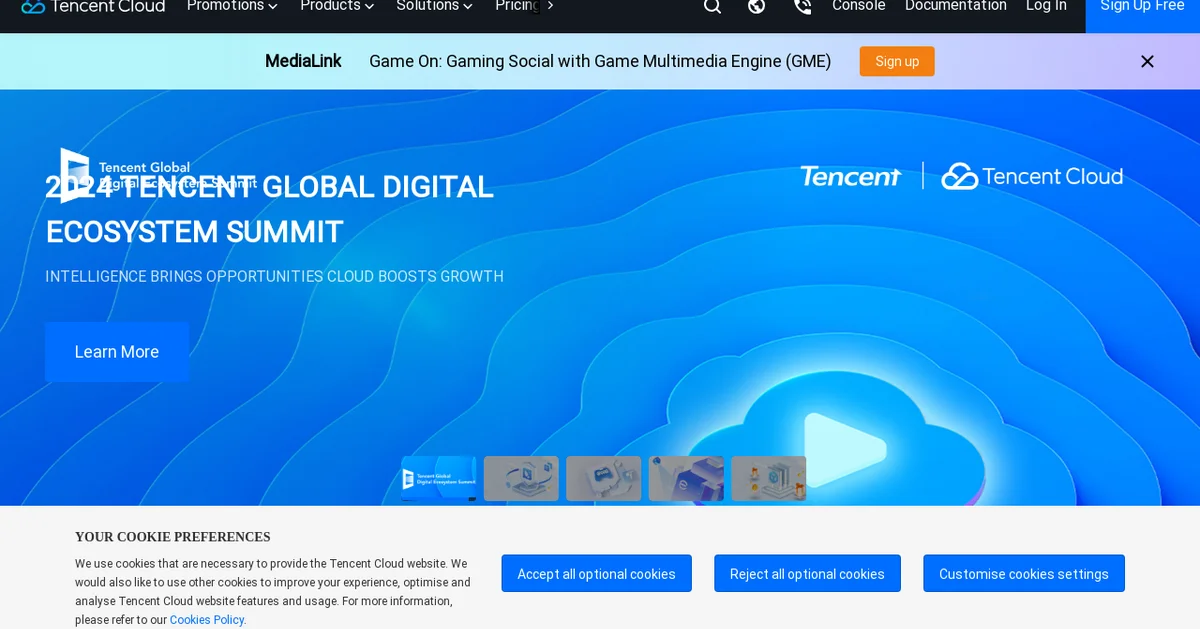
Tencent Cloud is a significant player in cloud computing. As a subsidiary of Tencent, one of the largest tech companies, Tencent Cloud uses the company’s extensive experience and infrastructure. They focus on providing strong solutions for enterprises pursuing digital transformation. Known for cost-effective offerings, Tencent Cloud aims to reduce expenses while increasing efficiency.
One notable feature that sets Tencent Cloud apart is their EdgeOne service, which emphasizes edge security and acceleration. This service provides DDoS protection, CDN capabilities, and other essential features designed to ensure smooth business operations in an increasingly connected world. Their Game Multimedia Engine (GME) serves the growing gaming sector, offering tools to improve social gaming experiences.
Tencent Cloud’s commitment to customer service and support is another key differentiator. They prioritize understanding their clients’ needs, allowing them to create tailored solutions. Whether providing cloud virtual machines or advanced data storage options, Tencent Cloud focuses on delivering high-quality, scalable services. Their global infrastructure enables businesses to expand without concerns about reaching their audience, regardless of location.
Tencent Cloud offers an appealing alternative to alt_13 by combining industry experience with innovative, cost-effective solutions that address various business needs.
Pros
- Extensive global infrastructure
- Cost-effective packages with significant discounts
- Tailored solutions based on customer needs
- Strong focus on security with EdgeOne
- Specialized offerings for gaming and multimedia
Cons
- May not be as widely recognized as some competitors
- Premium features can sometimes incur additional costs
- Limited documentation in some areas compared to industry leaders